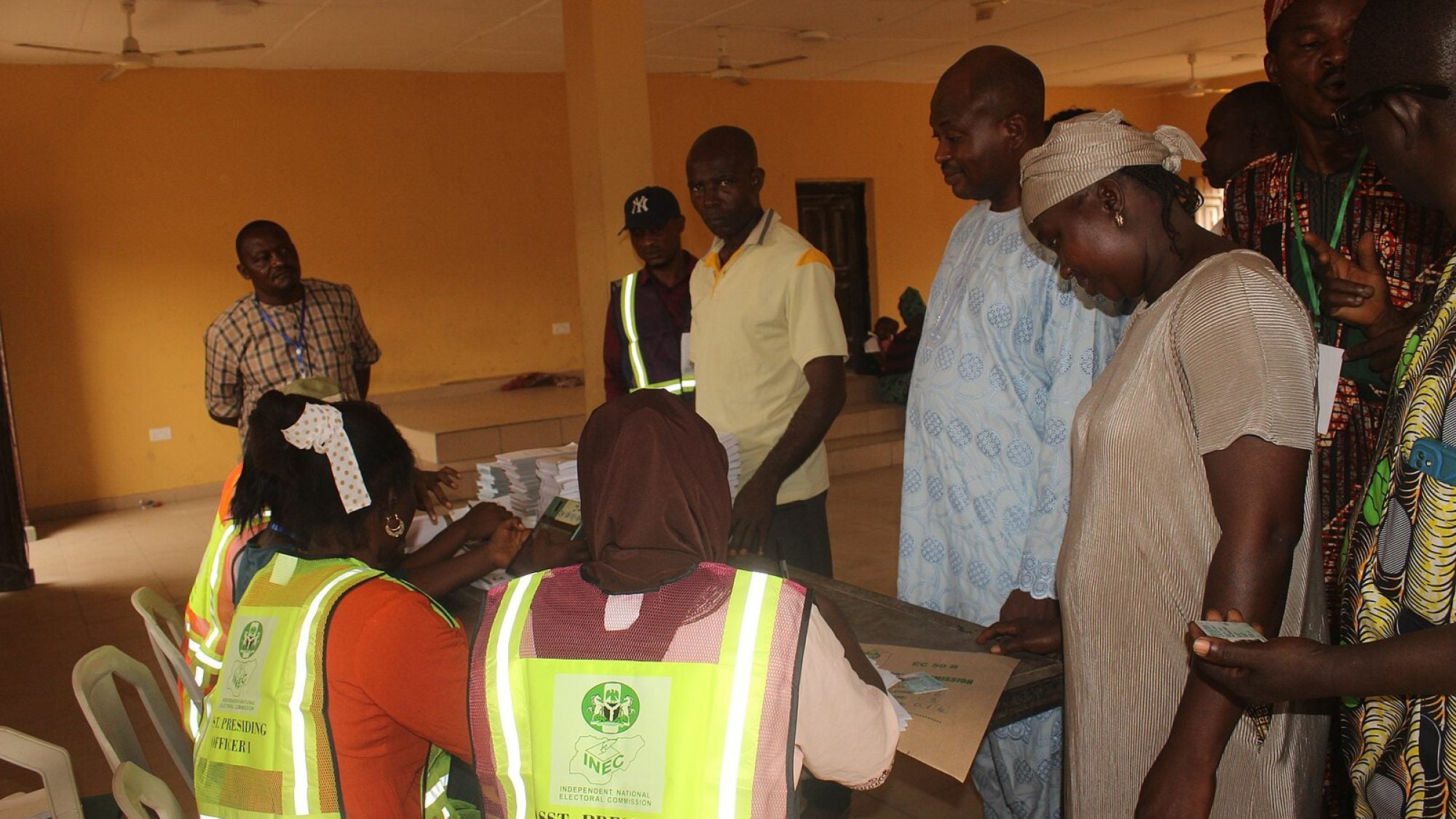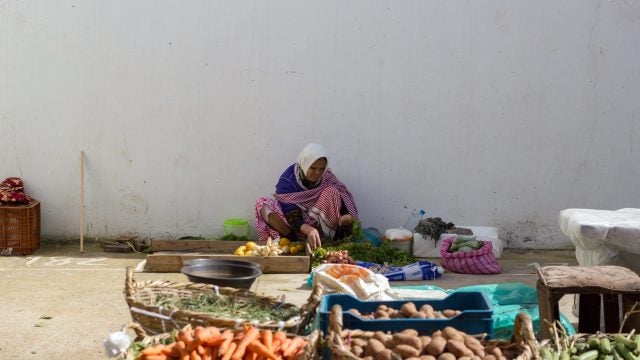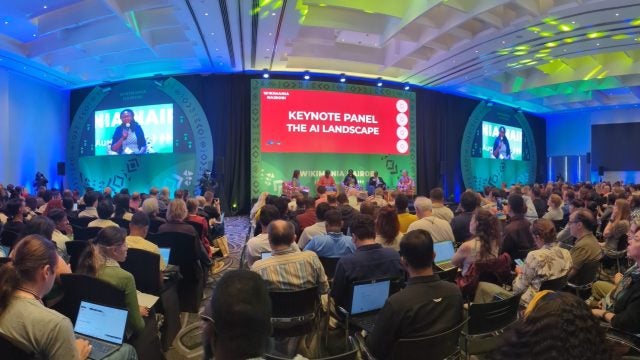
Title: Democratic Recession and the Judicialization of Elections in Africa
Transitional democracies, particularly in Africa, often produce flawed elections where judicial processes are shoehorned into determining the outcome of elections. Questions inevitably arise surrounding how this rising judicialization affects both the promise of the democratic right to vote and the institutional integrity of the judiciary. In the face of these trends, courts have a duty to fashion remedies that protect and uphold the right of the people to choose their leaders
At A Glance: The Electoral-Judicial Nexus
The assumption that the legitimacy of electoral democracy is contingent and conferred exclusively by the people has been increasingly open to dispute in many countries, especially in emerging democracies in Africa. Elections in many parts of the continent can be imperfect, leading to disputes in their wake. As was the case following the presidential elections in Kenya in 2007 and Nigeria in 2011, sometimes these hostilities escalate, turn violent, and result in atrocities, including those that involve crimes under international law.
To avoid such descent into crisis, there has often been a concerted effort to persuade those aggrieved by these flawed elections in Africa to take their grievances to the courts. Politicians, especially those officially proclaimed winners in elections, usually admonish the losing sides to “go to court,” presenting the judicial route as a binary choice between order and chaos. As a result, elections can linger long after the ballots have been cast, with the final decisions being increasingly made by unaccountable judges.
However, such attempts to preclude election-related conflict by shoehorning all grievances into the judicial process have discouraged deeper reflection on the wider consequences and impact of having the courts as the ultimate arbiters of elections. Democratic legitimacy and judicial independence are at risk by the increasing judicialization of elections.
Going Beyond Democratic Recession
Democratic Recession is widely studied and observed in today’s political forums. There has undoubtedly been a global rise in populist authoritarianism and increasing incidents of unconstitutional actions, particularly in the African continent. However, the above tends to overlook less dramatic trends that have also enabled the corrosion of democratic participation.
An emerging threat in this realm is the intense judicialization of democratic legitimacy. This refers to the use of judicial procedures to lend legitimacy to an electoral process that lacks it–a strategy that often deploys judges (and politicians) to weaken the rights of the people. Such judicial interference in elections tends to breed further democratic erosion, especially endangering judicial independence as a pillar of the rule of law.
Democratic Constraints on Judicial Authority
To understand how the judicialization of elections occurs, it is essential to stress that the role of the judiciary in elections should be a narrow one. The democratic process, as a rule-constrained system for the transfer and exercise of power, assumes the existence of what Ernst Fraenkel called the normative state of the rule of law, which he distinguishes from the authoritarian, prerogative state. This situation can only exist in a sovereign state with a reasonably independent judiciary to arbitrate and interpret the norms applicable to a democratic society.
As such, the role of the courts is to oversee the rules governing the validity of the electoral process—to ensure that all ballots will be cast and counted. To implement these laws, many countries establish election management bodies (EMBs) to supervise and organize their elections and declare their outcomes. When elections occur in this manner, they ensure that democratic legitimacy resides with the people.
Although an independent judiciary is widely recognized as an essential ingredient of electoral democracy, it cannot always be assumed that courts are fit for purpose as they can overreach.
When the Courts Overreach: Nigeria’s Case
Following the wave of democratization around Africa in the 1990s, the role of the judiciary in elections was largely seen as a source of “hope for those concerned about the success of new African democracies.” However, this assumption deserves re-evaluation in light of recent experiences.
Courts are increasingly being instrumentalized in a manner that uses the appearance of norm-abiding processes to engineer authoritarian conditions into being. They overreach in determining, not merely the rules governing the validity of elections, but also in making calls as to the winners and losers of specific electoral contests.
In Nigeria, for instance, over 80% of the contested offices in elections in any cycle can be decided by the judges, and the courts can set aside official electoral returns and substitute their own or routinely re-compute returns by the EMB. If judges are determining over 80% of the seats or positions contested in elections, that is a sign of overreach. It also means the courts cannot do their regular work because they suffer an inundation of election disputes.
This has also created a situation described by The Economist as a “democracy by court order.” In 2011, for instance, the courts for a third time awarded a seat in the upper chamber of the national parliament to a man who had never won an election. In another case in 2019, they conferred the mandate of the Imo State governorship to someone who had manifestly lost during state governorship elections. In that same year, Nigeria’s Supreme Court invented a doctrine whereby the votes of the winning candidate were “wasted” and declared void on a pre-election technicality. Under the cover of judicialism, this form of deployment of the courts subverts the will of the people in a manner not dissimilar to the effect of a military coup.
Risking Democracy and Endangering the Courts
Such judicialization of elections enables democratic recession in three ways. First, it vitiates the right to democratic participation and suppresses the popular will as the basis for democratic legitimacy. Second, it enables the courts to deprive the people of their democratic rights while shedding any pretense of electoral legitimacy. Third, it provides perverse incentives for politicians looking to interfere in elections using judicial means, making the judiciary in many African countries a battleground for the pre-determination of election outcomes.
For instance, in Malawi, in 2020, the president attempted to remove the Chief Justice in order to secure a Supreme Court panel more solicitous of his interests in the lead-up to a presidential re-run, following a rigged electoral contest that had been struck down by the courts. The following year in September 2021, the ruling party in Zimbabwe pressured the Constitutional Court to overrule an earlier decision of the High Court that blocked an extension of the tenure of the Chief Justice after he had reached the official retirement age. This allowed the Chief Justice to continue to serve, but on a contract that made him more subject to presidential whim. Ahead of contentious national elections two years later, the same president decided to advance $400,000 to all serving judges in Zimbabwe in “housing loans” with no repayment obligations; one of the beneficiaries was the chair of the Zimbabwe Electoral Commission (ZEC), herself a serving judge.
Unsurprisingly, such developments have the capacity to endanger the idea of government founded on the will of the people, especially when they encourage a perception that judicial overreach can be politically maneuvered. This was evident in April 2020, when Mali’s Constitutional Court overturned the results of 31 parliamentary seats won by the opposition. Its decision to hand these seats over to the ruling party sparked an uprising that led first to the dissolution of the Constitutional Court, and later the overthrow of the government in a military coup. Mali’s twin crises of governmental fragmentation are a tragic reminder of the dangers of judicial overreach in election adjudication.
Restoring the Mission of the Courts in Democracies
Judicial interference in election dispute resolution produces externalities that are toxic for democracy and electoral legitimacy. When courts add and subtract votes to turn themselves into election arbiters, they endanger the vocation of the judiciary, imperil democracy, and muzzle the will of the people as the foundation of legitimate government.
The response to this must be a re-balancing. There is a need to restore the mission of the courts to policing the rules that govern elections, such that they do not substitute themselves as election administrators or, even worse, determine the winners and losers in elections.
As such, the crisis of democratic recession in Africa offers an opportunity to re-evaluate and recalibrate the role of courts and judges as essential in the democratic process. Wherever the evidence compels the courts to invalidate an election, the most desirable remedy must be one that empowers the people to choose their leaders. For example, when the Supreme Court of Kenya invalidated the presidential election in September 2017, it rightly ordered the EMB “to organize and conduct a fresh Presidential Election in strict conformity with the Constitution and the applicable election laws.” Malawi’s Supreme Court issued a similar order in May 2020 when it upheld the invalidation of the presidential election of 2019. In Kenya, the re-run controversially revalidated the earlier result; in Malawi, it ousted the incumbent.
While remedies exist, it must be remembered that jurisprudence which subverts the will of the people ultimately endangers both democracy and credible judiciary itself. And that must be avoided at all costs.
…
Chidi Anselm Odinkalu is Professor of Practice in International Human Rights Law at the Fletcher School of Law and Diplomacy at Tufts University. He chairs the Board of Directors of the International Refugee Rights Initiative (IRRI) and the International Advisory Board of Global Rights and received his Ph.D. in Law from the London School of Economics and Political Science
Image Credit: Wikimedia Commons
Recommended Articles

This paper examines the interrelated crises facing the Maghreb region: water scarcity and gender inequality. It describes the current approach towards addressing water scarcity and how incorporating women’s voices into…

This article compares U.S. and Chinese approaches to artificial intelligence (AI) exports in Africa and examines how these disparate approaches have produced both downstream benefits and challenges for the region.

On May 20, 2025, the World Health Assembly unanimously adopted the World Health Organization (WHO) Pandemic Agreement, an international treaty designed to strengthen pandemic prevention, preparedness, and…